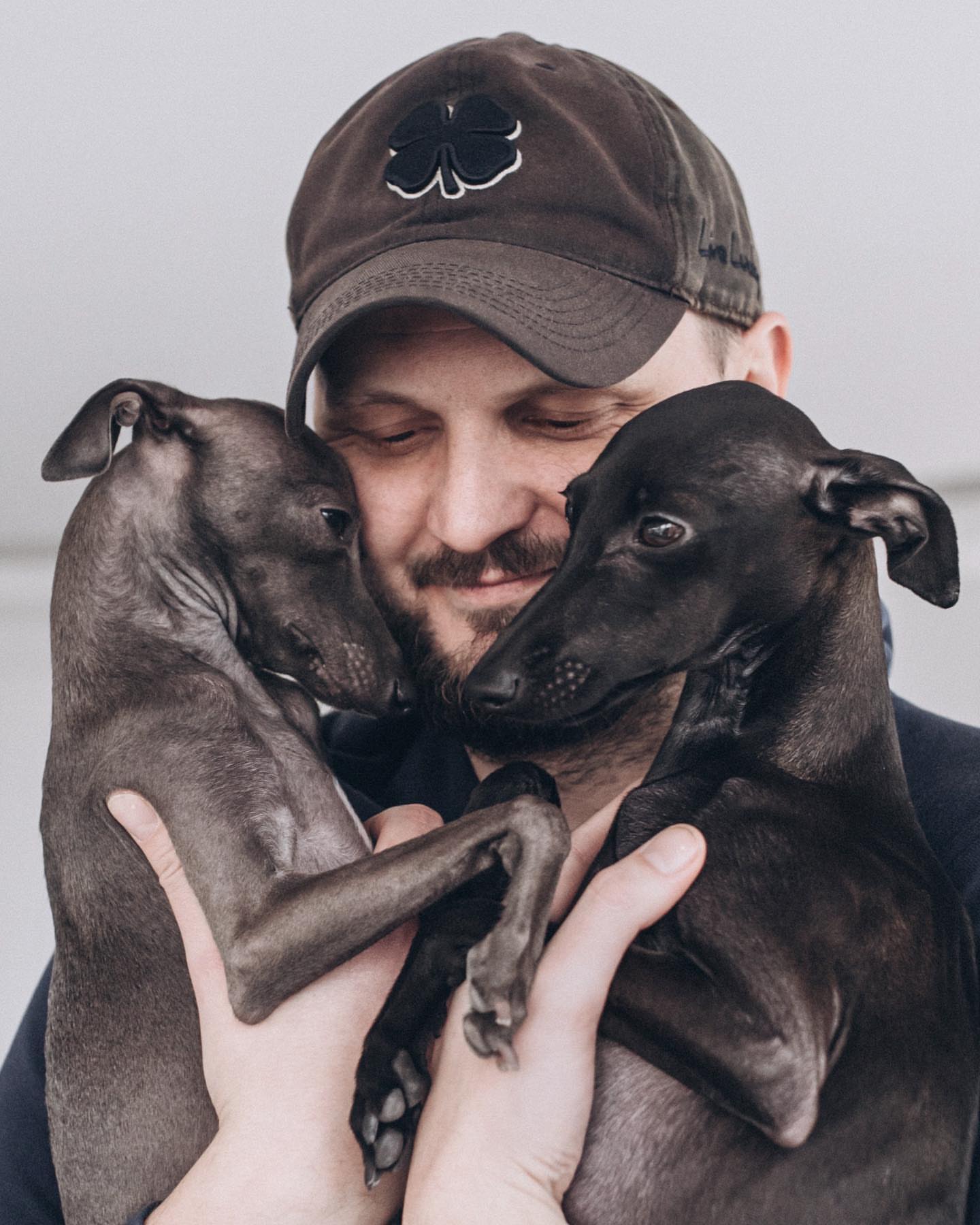Have you ever watched your furry friend, tail wagging, then suddenly, they start rubbing their face on the floor? It’s a behavior that can be both perplexing and concerning. Is it a sign of something serious, or simply a quirky canine quirk? Let’s delve into the possible reasons behind this unusual behavior and provide you with the information you need to understand and address it.

Image: www.petibble.com
Dog behavior is a fascinating world, full of nuanced expressions and signals. It’s our responsibility as pet owners to try and decipher these subtle cues, especially when they raise concerns. Understanding why your dog rubs their face on the floor can be a crucial step in ensuring their well-being and fostering a happy bond between you and your canine companion.
The Mystery Behind the Face Rub
Your dog’s face rubbing behavior can be attributed to various factors, ranging from harmless habits to potential health concerns. Let’s explore some common reasons:
1. Itchiness:
This is perhaps the most straightforward explanation. Just like humans, dogs can experience itching, and a quick rub against a surface can be their way of relieving discomfort. Itching can be caused by allergies, parasites (like fleas or mites), skin infections, or even environmental irritants such as pollen or dust.
2. Facial Discharge:
Discharge from the eyes, nose, or ears can be irritating. Your dog might be rubbing their face on the floor to try and get rid of excess mucus or other secretions. If you notice any abnormal discharge, it’s wise to consult with your veterinarian to rule out underlying medical conditions.
3. Sensory Stimulation:
Dogs have a highly developed sense of smell, and their facial features contain specialized receptors that collect information from the environment. Rubbing their face on the ground could be a way for them to explore and absorb scents, especially if the area has a strong odor.
4. Anxiety or Stress:
Dogs, like humans, experience stress. Face rubbing can be a form of self-soothing behavior, helping them cope with anxiety, separation anxiety, or other stressors. If you notice your dog engaging in this behavior more frequently when they’re stressed, it’s essential to address the root cause of their anxiety.
5. Boredom or Attention Seeking:
A bored dog might engage in excessive face rubbing as a way to occupy their time or demand attention. If your dog is regularly engaging in this behavior, consider providing them with more enrichment activities like puzzle toys, interactive games, or longer walks to keep them mentally stimulated.
6. Pain or Discomfort:
If your dog is rubbing their face on the floor with excessive force, or if their behavior seems abnormal and accompanied by other symptoms like lethargy, loss of appetite, or visible discomfort, they might be experiencing pain. This could indicate a dental issue, ear infection, or other medical condition.
7. Behavioral Issues:
In some cases, rubbing the face on the floor could be a learned behavior triggered by a specific situation or environment. For instance, if they associate rubbing their face with a particular smell, sound, or object, they might continue this behavior even if it’s no longer necessary.
Addressing the Issue:
The best course of action depends on the reason behind your dog’s face rubbing.
1. If you suspect itching:
- Consult your vet: Rule out underlying medical conditions such as allergies, parasites, or infections.
- Consider a hypoallergenic diet: This can minimize allergic reactions in some dogs.
- Try a medicated shampoo or cream: This can alleviate itching and discomfort.
2. If you notice facial discharge:
- Clean the discharge: Use a warm washcloth and gentle eye or ear cleaner to remove excess secretions.
- Monitor: If the discharge persists, consult your veterinarian to identify the cause and receive appropriate treatment.
3. If your dog is anxious or stressed:
- Identify and address the source of anxiety: This might involve training, behavioral modification, or creating a more calming environment.
- Consider calming aids: Some natural supplements or pheromone diffusers can help reduce stress.
4. If your dog is bored or seeking attention:
- Provide mental stimulation and enrichment: Offer interactive toys, puzzles, and training sessions.
- Engage in regular exercise: Walk, run, or play with your dog to provide physical and mental stimulation.
5. If you suspect pain or discomfort:
- Contact your vet immediately: They can perform a thorough physical exam and necessary diagnostics to determine the cause of the discomfort and provide appropriate treatment.
6. If you suspect a learned behavior:
- Seek advice from a professional dog trainer: They can help you identify the triggers and develop a strategy to redirect this behavior.
Expert Insights & Actionable Tips
Dr. Samantha, Veterinarian
“Consistency is key! Start by establishing a routine with regular walks, playtime, and training to provide your dog with structure and a sense of security. If your dog is experiencing a medical issue, follow your vet’s instructions carefully for their well-being. Remember, every dog is unique, and their individual needs may vary.”
Sarah, Certified Dog Trainer:
“Don’t neglect mental stimulation! Puzzles and games can be just as crucial as physical exercise for your dog’s well-being. Challenge their mind with engaging activities to prevent boredom and reduce unwanted behaviors.”

Image: topdogtips.com
Why Is My Dog Rubdomain_7 His Face On The Floor
Conclusion
A dog rubbing their face on the floor can be a sign of a variety of things, from simple itchiness to underlying health issues. Addressing the root cause is key to resolving this behavior and ensuring your dog’s health and happiness. Be observant, seek professional advice when needed, and remember that understanding your dog’s communication is crucial for a harmonious relationship.
If you’re concerned about your dog’s behavior, don’t hesitate to reach out to your veterinarian or a certified dog trainer. They can provide personalized guidance based on your dog’s specific needs and help you navigate this journey with confidence, providing you with the tools to create a happy and healthy life for your furry companion.






